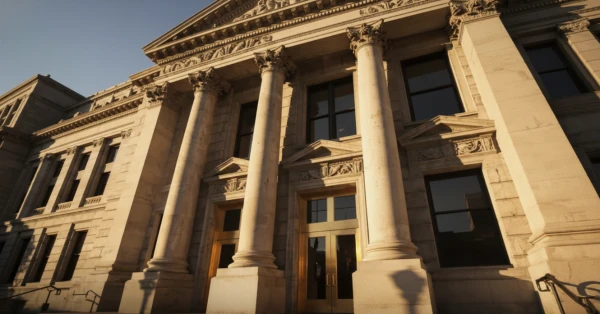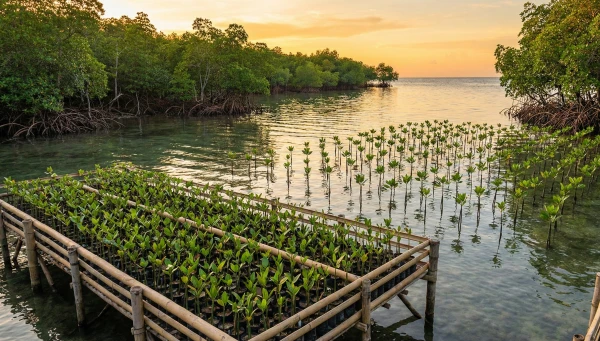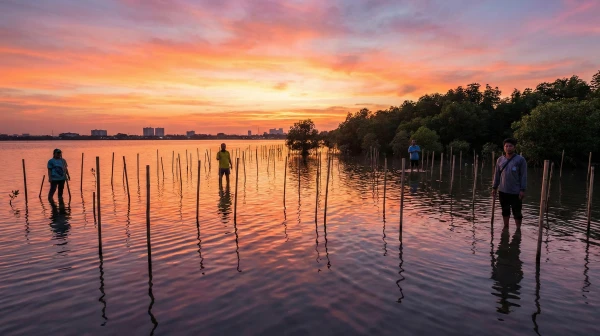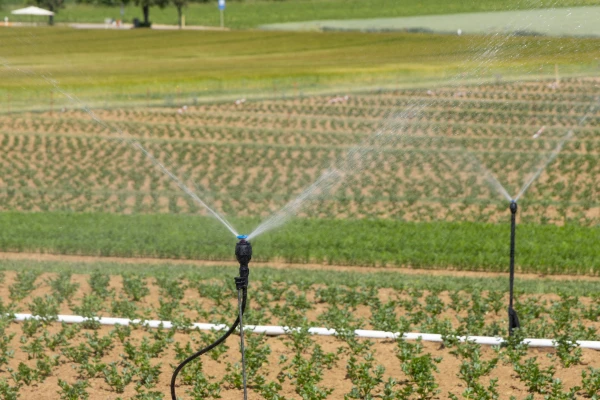Our Views
Demand generators for hotels - Ideas & concepts
Aninver Development Partners is a consulting company with significant experience in the Tourism and Hospitality sectors (T&H). We are an innovative and dynamic consulting company serving public and private clients around the world in different kinds of T&H-related consulting assignments.
What is a demand generator in a hotel?
In the world of hospitality, understanding the concept of a demand generator is essential. A demand generator, in the context of a hotel, is a factor or strategy that creates interest and draws potential guests to your establishment. In other words, it's what makes people choose your hotel over the countless other options available. Demand generators can be either internal, stemming from within the hotel, or external, related to factors outside the hotel's control.
Internal demand generators include the quality of service, the uniqueness of the hotel's amenities, and its reputation for excellence. External demand generators often revolve around the hotel's location, its proximity to attractions, and its accessibility.
The role of a hotel manager is to identify and leverage these demand generators to maximize occupancy rates and revenue. Let's explore some key demand generators in detail.
What is an example of a demand generator in hotels?
One of the most straightforward examples of a demand generator is a hotel's location. When a hotel is strategically situated near popular tourist attractions, business centers, or major events, it naturally becomes a desirable option for travelers. Guests often choose accommodations based on convenience, and a prime location can be a significant draw.
For instance, consider a hotel located in the heart of a vibrant city, within walking distance of famous landmarks, restaurants, and shopping districts. This location serves as a powerful demand generator, attracting guests who want to make the most of their stay by being close to the action.
1. Proximity to Popular Tourist Attractions:
Imagine a hotel located within walking distance of famous landmarks, such as the Eiffel Tower in Paris or Times Square in New York City. This proximity to iconic tourist attractions is a significant demand generator, as it allows guests to easily explore and enjoy the city's highlights during their stay.
2. Business-Centric Location:
A hotel strategically situated in the central business district of a major city can be a demand generator for business travelers. These guests prioritize convenience, as they need to attend meetings and conferences in the area. A hotel in close proximity to corporate offices and event venues becomes a natural choice for such travelers.
3. Event Venues and Convention Centers:
Hotels near convention centers, sports arenas, or concert venues often experience high demand during events. For instance, a hotel adjacent to a major convention center can attract attendees looking for convenient accommodations while attending a trade show or conference.
4. Oceanfront or Beach Access:
Hotels with direct access to a beautiful beach or waterfront location can be a powerful demand generator, especially for leisure travelers seeking a tranquil and picturesque escape. Imagine a resort-style hotel with private beach access; the natural beauty and relaxation it offers make it a sought-after destination.
5. Airport Proximity:
For travelers with early or late flights, or those seeking convenience during layovers, hotels near airports are in high demand. A hotel adjacent to a major international airport can cater to the needs of these guests, offering comfort and accessibility.
6. Unique Themed Accommodations:
Hotels with unique themes or one-of-a-kind experiences can be a demand generator in their own right. For instance, a hotel designed like a medieval castle or one that offers treehouse accommodations can attract guests seeking novelty and memorable stays.
7. Spa and Wellness Facilities:
Hotels with world-class spa and wellness facilities can draw guests looking for relaxation and rejuvenation. A hotel with a luxurious spa, a range of wellness treatments, and a serene ambiance becomes a demand generator for wellness enthusiasts.
8. Culinary Excellence:
For food enthusiasts, hotels with renowned restaurants, celebrity chefs, or culinary experiences can be a strong demand generator. Guests often seek out hotels where they can savor exquisite dining within the comfort of their accommodation.
9. Family-Friendly Amenities:
Hotels with family-focused amenities like water parks, childcare services, and family suites can attract travelers with children, serving as a demand generator for families seeking a memorable and hassle-free vacation.
What affects demand in the hotel industry?
Understanding the intricate interplay of these factors is fundamental to the success of any hotel operation. However, demand, the lifeblood of the industry, is subject to a multitude of influences, from economic fluctuations and seasonal trends to competitive landscapes and emerging social preferences.
In the following exploration, we will delve into the key factors affecting demand within the hotel industry. By comprehending these influences, hotel owners, managers, and operators can develop strategies that optimize occupancy rates, revenue, and guest satisfaction.
1. Economic Conditions:
Economic conditions play a pivotal role in shaping demand within the hotel industry. During economic upswings, when consumer confidence is high and disposable income increases, people are more inclined to travel and spend on accommodations. Conversely, during economic downturns or recessions, travel budgets may shrink, resulting in decreased demand for hotel stays.
2. Seasonal Trends:
The hotel industry often experiences pronounced seasonal variations in demand. Travel patterns are influenced by factors like weather, holidays, and festivals. For example, beachfront resorts may experience peak demand during the summer months, while ski resorts see a surge in visitors during winter. Understanding these seasonal fluctuations is essential for optimizing pricing and occupancy rates.
3. Events and Conferences:
Major events, conventions, conferences, and festivals can create spikes in demand for hotel accommodations. When a city hosts a high-profile event, such as the Olympics, a political summit, or a large-scale trade show, hotels near the event location often experience a surge in bookings. This is especially true if the hotel offers proximity and convenience for event attendees.
4. Competitive Landscape:
The number and quality of competing hotels in a given area can significantly influence demand. In highly competitive markets, hotels must work harder to stand out and attract guests. Differentiation through unique amenities, exceptional service, or strategic marketing can be a key factor in maintaining demand and profitability.
5. Public Health and Safety:
Global health crises, such as pandemics or health-related scares, have a profound impact on travel and demand for hotel accommodations. Concerns about health and safety can deter travelers and lead to a sharp decline in bookings. As such, hotels must adapt to new health and safety protocols to restore traveler confidence and demand.
6. Transportation Accessibility:
The availability and convenience of transportation options can influence demand. Hotels situated near major transportation hubs, such as airports, train stations, or cruise ports, tend to attract guests who prioritize ease of travel.
7. Cultural and Social Trends:
Changing social and cultural trends can also affect demand. For instance, the increasing awareness of sustainability and eco-conscious travel has led to the demand for eco-friendly and green hotels. Similarly, evolving preferences for unique and authentic experiences have led to demand for boutique hotels and accommodations that offer local immersion.
8. Technological Advances:
Advancements in technology and the rise of online booking platforms have transformed how travelers search for and book accommodations. Hotels that adapt to the digital age by optimizing their online presence, providing mobile-friendly websites, and utilizing online marketing techniques can attract tech-savvy travelers.
9. Political and Regulatory Factors:
Political stability, government regulations, and visa policies can impact international travel demand. Political unrest or travel restrictions can deter tourists from visiting a region, while favorable policies can boost inbound tourism.
Understanding and responding to these factors is essential for hotel managers and owners to adapt their strategies, optimize pricing, and make informed decisions to meet the ever-changing demands of the hotel industry.
How to account for demand generators in your hotel feasibility study?
To incorporate the information about demand, demand generators, and factors affecting demand into your hotel feasibility study, follow these steps:
- Identify and Assess Demand Generators: Begin by identifying the key demand generators in the area where your hotel is proposed. These could be attractions, events, or business centers. Assess their potential to attract guests to your hotel.
- Market Demand Assessment: Conduct a thorough analysis of the current and projected demand for hotel accommodations in the area. This should include seasonal variations, peak and off-peak periods, and trends in visitor numbers.
- Competitive Landscape: Evaluate the existing and potential competitors in the vicinity. Understand their strengths and weaknesses, and identify how your hotel can differentiate itself by leveraging demand generators.
- Pricing Strategies: Determine pricing strategies that respond to variations in demand. Implement dynamic pricing based on factors like seasonality and major events. Include this in your financial model.
- Amenity Analysis: Highlight the unique amenities or themed features of your hotel and their potential to attract guests. Consider how these offerings can set your hotel apart and contribute to demand.
- Event-Driven Demand: If your hotel is near event venues or convention centers, factor in the event calendar when conducting your feasibility study. Understand how you can cater to event attendees and capitalize on event-driven demand.
- Digital Marketing Strategy: Integrate your digital marketing strategy into the feasibility study. Highlight the importance of a strong online presence, optimized website, and digital advertising to reach potential guests who research and book accommodations online.
- Revenue Projections: Develop revenue projections that take into account the demand generators. Consider how proximity to attractions, events, or business centers will impact occupancy rates and room rates.
By incorporating these factors into your hotel feasibility study, you'll create a comprehensive and informed assessment of the potential for success in your hotel venture. This information will guide your decision-making process and help you develop strategies to maximize the utilization of demand generators and respond effectively to factors affecting demand in the hotel industry.










